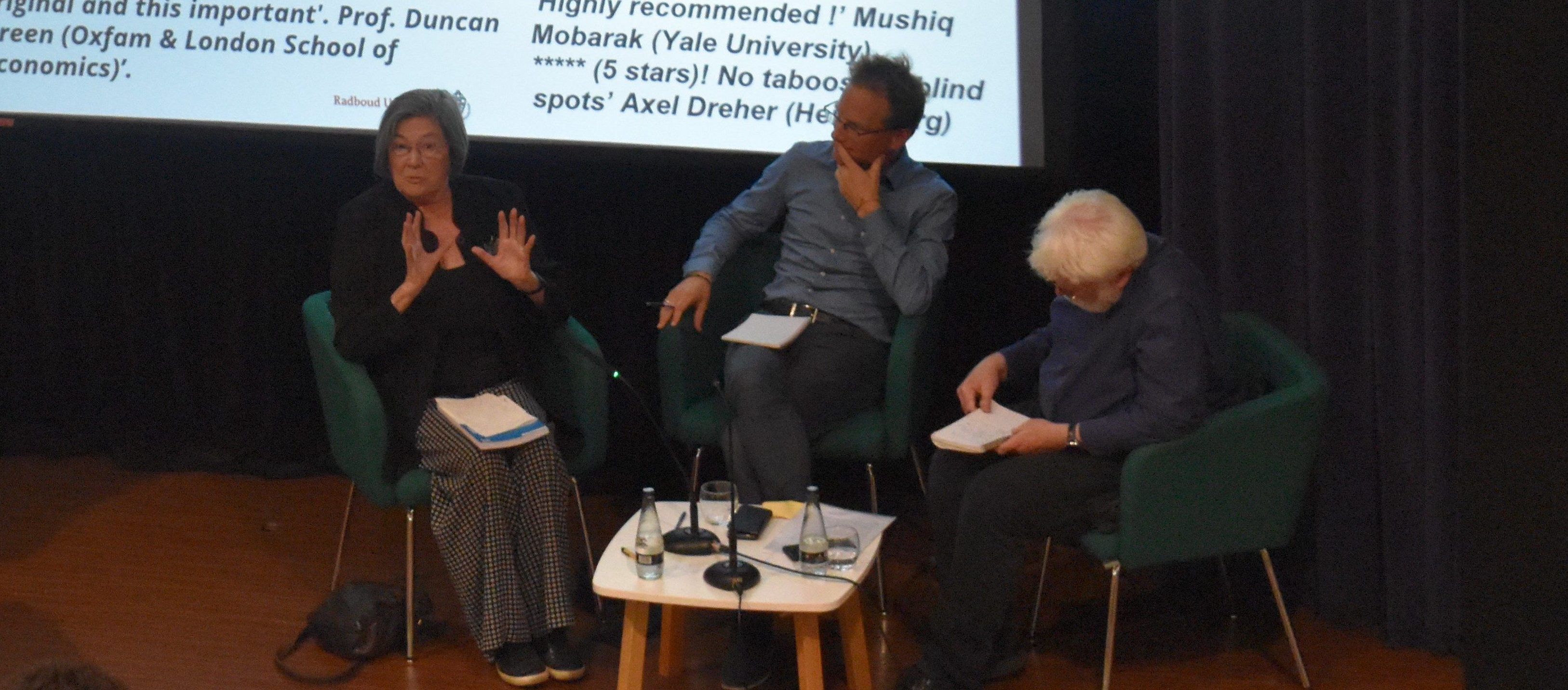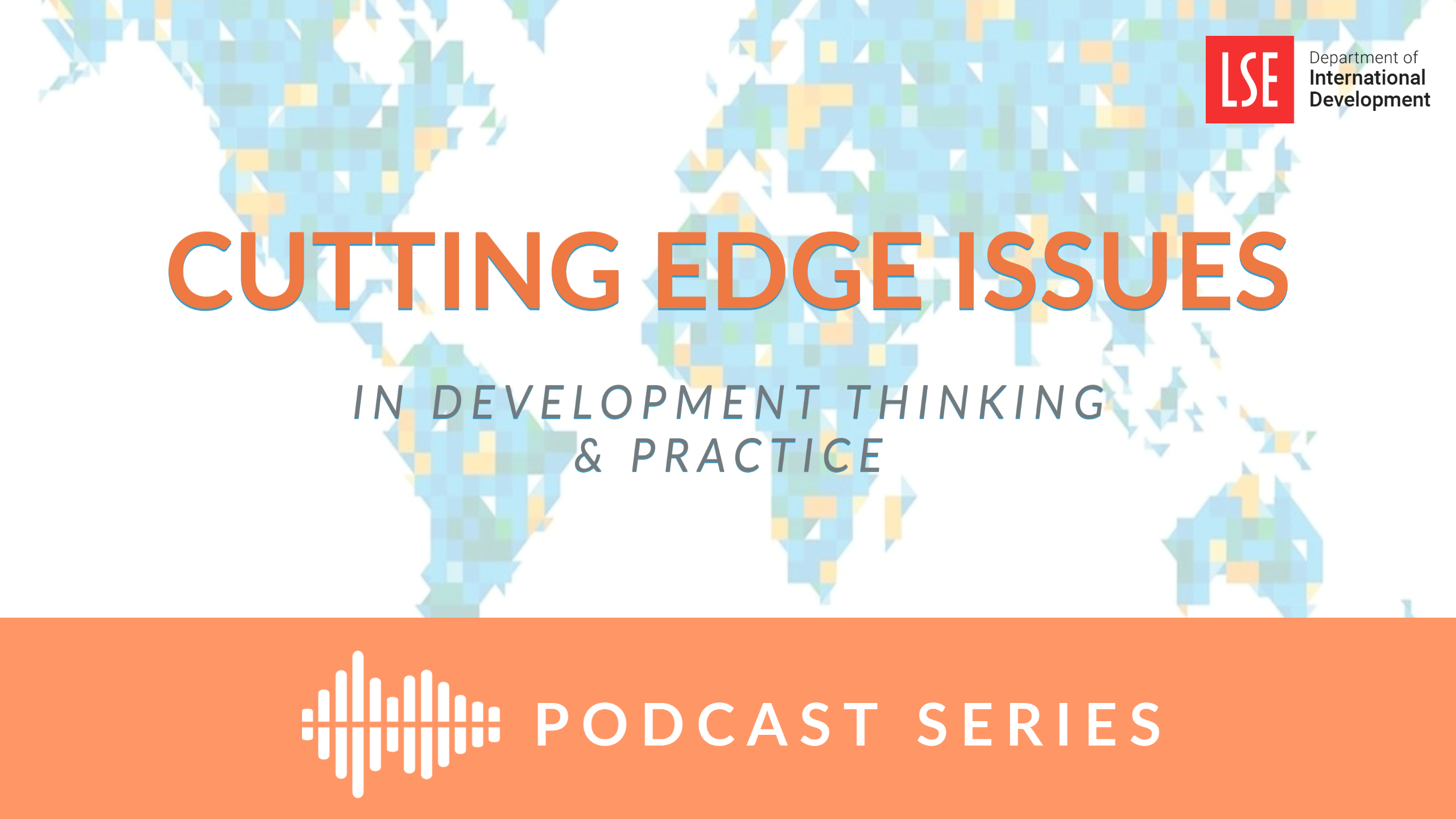This is a special podcast originally published on the World Peace Foundation on the war in Tigray, Ethiopia. It is a recording of a phone call from somewhere in rural Tigray on January 27, in which Mulugeta Gebrehiwot Berhe spoke with Alex de Waal, both linked to LSE’s Justice and Security Research Programme.
This a special podcast from World Peace Foundation on the war in Tigray, Ethiopia. It is a recording of a phone call from somewhere in rural Tigray on January 27, in which Mulugeta Gebrehiwot Berhe spoke with Alex de Waal.
Listen to the interview here
At times the quality of the recording is poor, because of this there is also a link to the the interview transcript here
Mulugeta was a member of the TPLF during the guerrilla war from 1975 to 1991, and served in several senior positions in the EPRDF government from 1991 to 2000. Subsequently he founded the Institute for Peace and Security Studies at Addis Ababa University, and among other things initiated the Tana High Level Forum on peace and security in Africa. Mulugeta is the author of Laying the Past to Rest: The EPRDF and the Challenges of Ethiopian State-building and co-author of a recent paper “Nationalism and Self-Determination in Contemporary Ethiopia,” reviewed recently on this blog.
Mulugeta was in Mekelle in November when the war broke out. He evacuated from the city to the mountains. This is the first time we have heard directly from him.
You know, the result became—they have destroyed Tigray, literally, all of them, EPLF, the Eritrean forces and the Ethiopian forces.
Mulugeta Gebrehiwot is a Senior Fellow at World Peace Foundation and former Program Director of the WPF African security sector and peace operations program where he led the project on Peace Missions in Africa.
Alex de Waal is the Executive Director of the World Peace Foundation at The Fletcher School of Law and Diplomacy at Tufts University. Considered one of the foremost experts on Sudan and the Horn of Africa, his scholarly work and practice has also probed humanitarian crisis and response, human rights, HIV/AIDS and governance in Africa, and conflict and peace-building.
This article and podcast was originally published in the World Peace Foundation.
The views expressed in this post are those of the authors and in no way reflect those of the International Development LSE blog or the London School of Economics and Political Science.






A mountain of lies will not amount to one ounce of truth. Taking the word of Alex Dewaal, a known paid agent of TPLF, since their rebel days as a fair and balanced fact is like taking the word of Joseph Goebbles to get an accurate description of Hitler. The simple fact remains TPLF, a tiny regional secessionist brutal group, with the help of Ethiopia’s historical enemies, in 1991 wheeled out an ethnic militia from Tigray and occupied Ethiopia for 27 years. Millions were displaced, tens of thousands murdered, hundreds of thousands thrown in jail bricks hanging on prisoners testicles. They humiliated, and degraded Ethiopians and looted the country blind, billions. One conglomerate EEFORT hold half of Ethiopia’s economy. But worst of all, acutely aware of their 5% minority status, they imposed a vicious ethnic apartheid bantustan, and raised a whole generation kids from one size of the country who cant speak to those from the other side. They deliberately divided or diminished regions that existed for centuries. For example, my region SHEWA twenty million folks in it, majority multiethnic, that existed for a 1,000 years was divided into four pieces wiped off the face of the earth. NOTHING SHORT OF CULTURAL GENOCIDE. You say Tigray this Tigray that, this pile of rock where serpents and racist maggots act as if they are human beings. Have you ever even knew what was done to Shewa? It’s like a dagger was stuck in our chest for 30 years, blood streaming from our eyes. Stop crying for them it’s no use, they are getting what they did to the other 95% for 30 years. You talk about Amhara ethnic cleansing but fail to.understsmd the land between Tekezae River and Sudan border was NEVER EVER part of Tigray. They seized it by force in 1991, forced half a million Amharas to flee and settled Tigres from Tigray, and those who lived in Sudan since the famine of the 80s. A Tigre youth group called Samre, named so because their parents moved there in 1991, hacked to death over 1,100 Amharas at MaiCadra when the federal army approached and they flee to Sudan. Now you cry night and day about Tigre killed in Axum, not a word about Maicadra, or the hundreds of Federal officers they shot while they attacked federal bases. They even cut off the breats of some women officers. But who cares the experts Alex Dwaal, Martin “the monkey” Plaut and paid agents, the whole Europe just empty echo of their lies. One thing is for sure TPLF dead and buried like the Nazis and Soviets, no amount of lies will.bring it back.
You publish this as news. It is not. These 2 guys are vastly biased in favour of the TPLF.
This whole story is an invented radio call.
Thank you for sharing this information. For months we were not able to speak with my grandmother in Adwa, Tigray. About 3 weeks ago we were finally able to speak with her and have since been communicating regularly. The situation there is awful and scary. They have no food or water. Electricity is on and off. They are being attacked by both Ethiopian and Eritrean soldiers. The Eritreans have looted and ransacked homes; Killing young men and raping women; Massacring hundreds of people during religious worship. My grandmother is scared never knowing what is going to happen next. People are suffering with no food or shelter. Hospitals and schools have been destroyed. The truth of this ethnic genocide and atrocities need to be brought to light so the world can put pressure on the Ethiopian government to stop. This is nothing more than jealousy and hate from the Amhara and Eritreans who have hated Tigray peoples for hundreds of years, conspiring together to kill all Tigrayans so they can divide their land and resources.
Notwithstanding the disclaimer at the end, this post entry is simply not worthy of an LSE blog entry. It harms he reputation of LSE. It largely contains easily verifiable falsehoods particularly the reports by Mulugeta Gebrehiwot who is a member of the defeated party in this conflict.
For the sake of LSE’s reputation, do not feature interviews of and by those who are clearly biased and have an interest in promoting a propagandized narrative. This whole Tigray situation has truly lifted the curtain for me on the partiality and and one-sidedness of information disseminated by Western media and so-called institutes of higher thinking. It’s a shame, really. TPLF has for yearsssss neglected and abandoned the people of Tigray, failing to improve even marginally the standard of life for the average Tigrayan, while those in power have amassed obscene amounts of wealth by looting the country. Now that their corruption and deceit have been exposed, they cry genocide while holding their people and region hostage and forcing child soldiers to fight for TPLF greed. The saddest thing about this situation is that TPLF has mastered information warfare, and the people of Tigray have fallen victim to TPLF propaganda and turned against their fellow countrymen. TPLF currently controls media in Tigray and has been bombarding its people—and the whole world, really—with lies about the persecution of Tigrayans. Neither the government nor the people of Ethiopia have any interest in persecuting Tigrayans. The people of Tigray are just as much victims of TPLF’s greed and evil as any other group in the country. It is TPLF that Ethiopians want be rid of once and for all. Those heartless thugs know fully well that they have zero chance of being a legitimate political player in Ethiopia, so they are bent on causing as much destruction as possible on their way down. All this to say: LSE, do better. Make an effort to understand a situation thoroughly before weighing in. Or at the VERYYY least, just leave it alone.
I wish these pro-ET govt people would stop posting complaints every time they read news of famine and genocide in Tigray. Those comments do not give you credibility. Your refusal to believe the facts as reported by EVERYONE other than the ET government suggests that you are merely agents of the ET govt. If anything, it suggests that the ET government IS seeking to eliminate all Tigrayans and that’s why it is so defensive whenever that fact is pointed out. If you want the international community to have any respect for Abiy Ahmed and his goons, let the UN humanitarian aid workers back inside Tigray and STOP BLOCKING humanitarian aid. Also, stop referring to your fellow Ethiopians (the Tigrayans) as your mortal enemy. And while you’re at it, release the Tigrayans living outside of Tigray who are being detained for just being Tigrayan. Oh, and please don’t think that that election fooled the international community – jailing all opponents and sidelining opposing viewpoints is not exactly a free election. To Ethiopians who still support Abiy – if he doesn’t force ET into collapse and manages to win this civil war, the only thing you’ll be left with is a dictator. And if he’s willing to cleanse the country of Tigrayans today, he’ll be willing to cleanse the country of YOUR ethic group tomorrow
Now Mulegeta is writing sad articles on how destroyed Mekelle is. Yes very sad.
Who started the war?
Who ruled for ,,27 years?
Who got ousted from power 2018 by massive POPULAR protests.?
Who fiddled elections for 20 years?